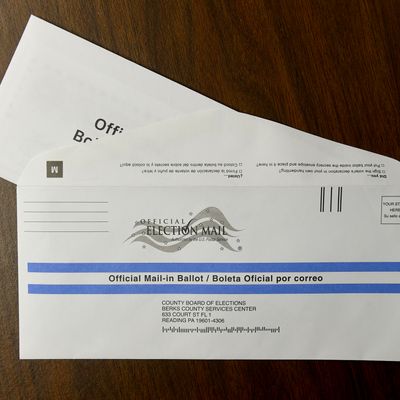
In a much-anticipated order, the Supreme Court turned down a Republican petition to stop Pennsylvania’s own high court from extending the deadline for receiving mail ballots because of the pandemic. The Court split 4-4 along ideological lines, with Chief Justice John Roberts siding with the three remaining liberals after Ruth Bader Ginsburg’s death. The extra leeway could allow tens of thousands of otherwise rejected mail ballots to be counted, though it will also likely slow down the count, which will embolden the Trump campaign and its supporters to allege imaginary fraud and claim victory. Here’s how the Washington Post’s Robert Barnes explained the practical effect of the GOP loss:
The Pennsylvania Supreme Court ruled in Democrats’ favor last month on a number of mail-voting rules: permitting voters to turn in ballots via drop box in addition to using the U.S. Postal Service; allowing ballots to be returned up to three days after Election Day; and blocking a Republican effort to allow partisan poll watchers to be stationed in counties where they do not live.
Pennsylvania’s Republican legislators and the state GOP asked the U.S. Supreme Court to weigh in only on the ruling pushing back the deadline for mail ballots to arrive. The state court said such ballots must be counted if they are postmarked by Nov. 3 — and even if no postmark is discernible “unless a preponderance of the evidence” shows that the ballots were mailed after Election Day.
Without opinions, it’s hard to divine what, if any value, the denial of the GOP petition might have as precedent. You obviously have to wonder if the order would have been granted had Amy Coney Barrett been on the Court to break the tie. The odds seem high that she would have joined her fellow Trump appointees Gorsuch and Kavanaugh in second-guessing the state court just enough to put aside its change in the mail-ballot deadline. But we may never know for sure.
The practical effect of this nonintervention by SCOTUS could be negligible if Joe Biden’s current lead nationally and in the Keystone State holds, but could be enormous if the national race tightens and Pennsylvania remains the “tipping-point state,” giving the winner 270 electoral votes, as FiveThirtyEight says it may well be.






























